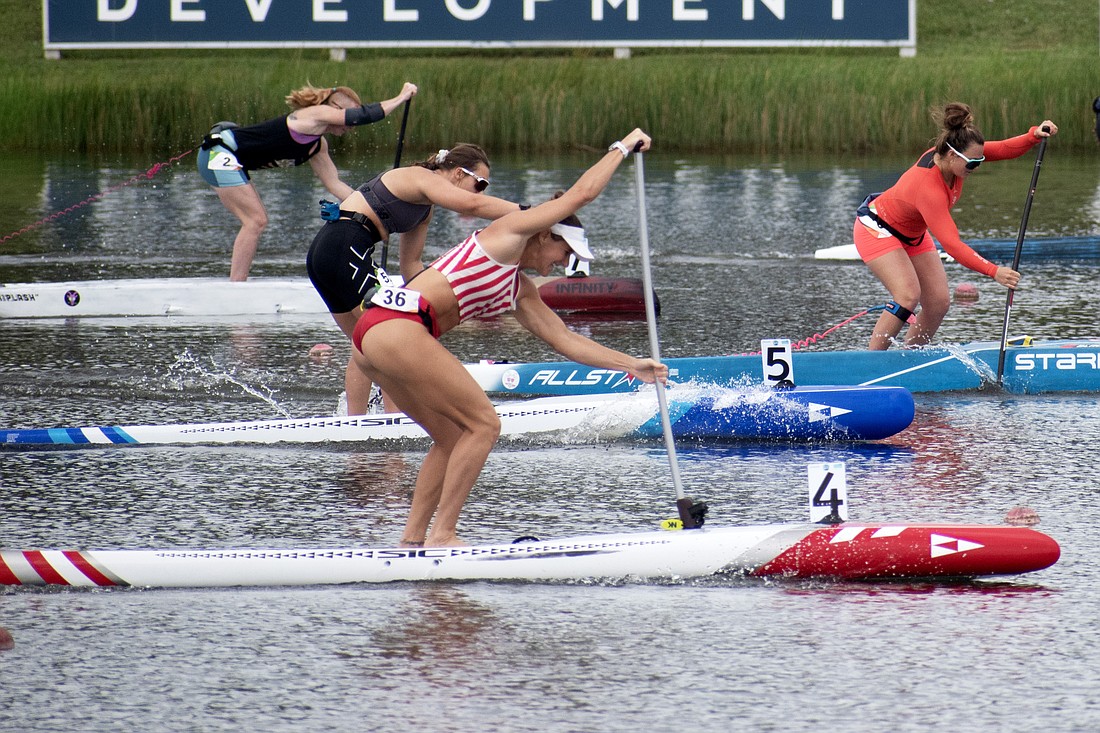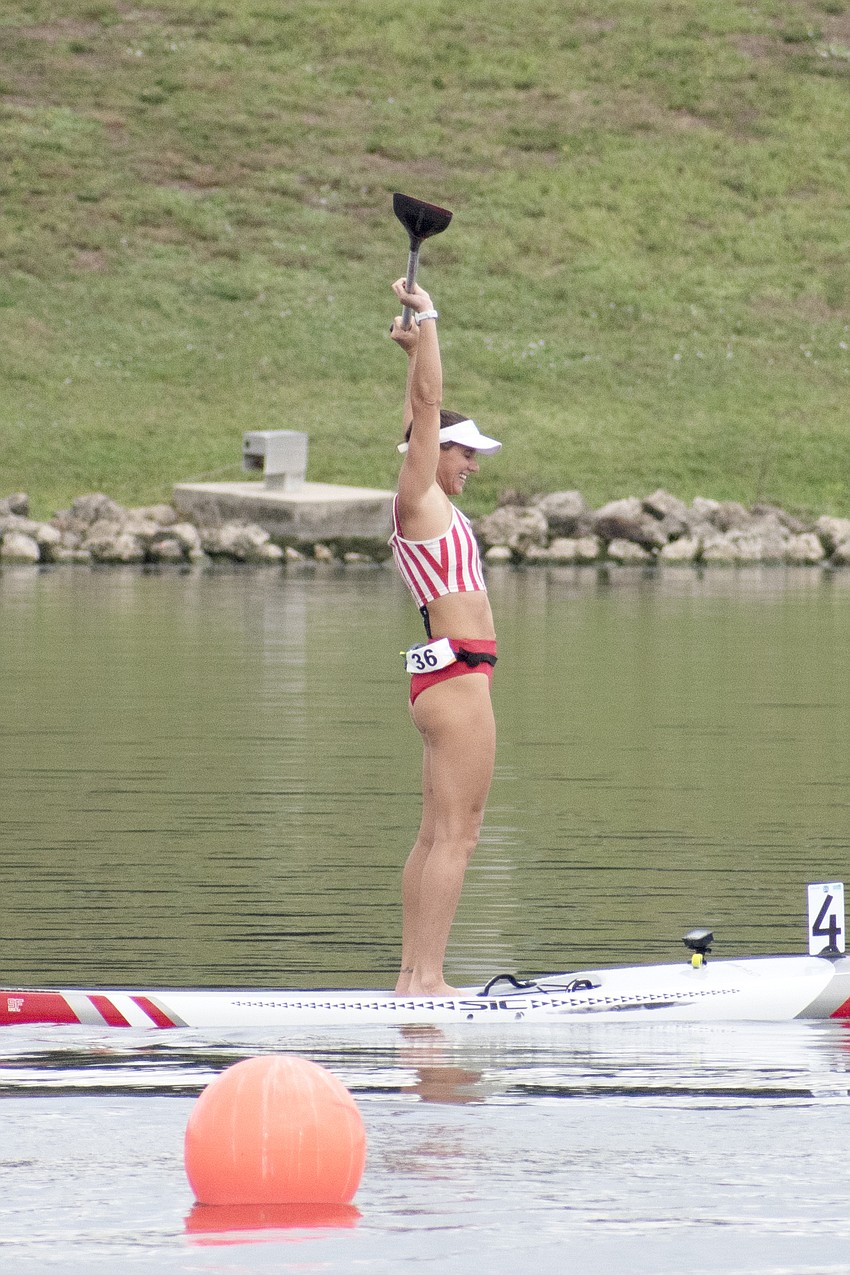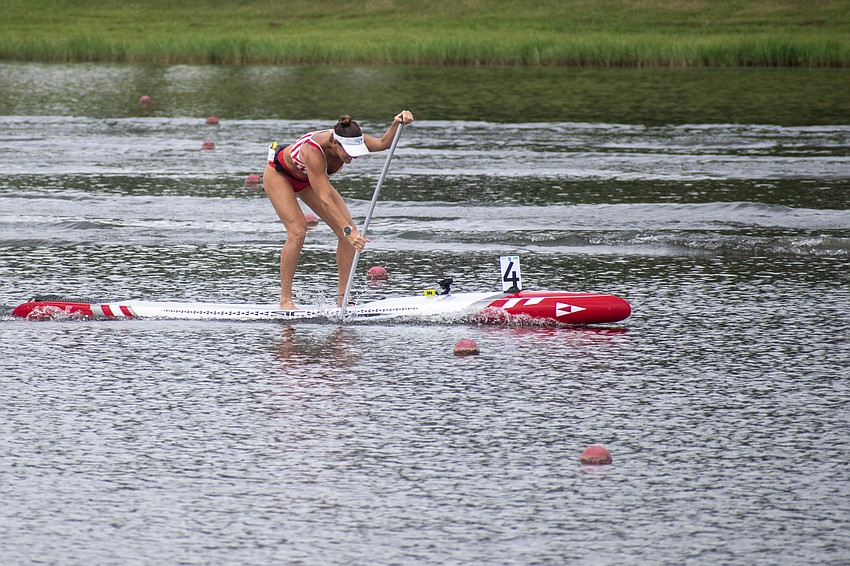- July 26, 2024
-
-
Loading

Loading

The top competitors in every sport have qualities that make them different from everyone else.
In stand-up paddleboard, known as SUP by the members of its community, being different means being a little fanatical, to put it mildly.
You have to be a little crazy, for instance, to attempt a 24-hour race. You have to be even crazier to attempt a Guinness world record in the process. Seychelle Webster — who prefers to be called only by her first name, as evidenced by her personal brand and coaching business — would agree.
The 36-year-old, who lives in Melbourne Beach, attempted such a feat in December 2015 and succeeded, paddling 110 miles in 24 hours at Nathan Benderson Park and setting the distance record for both female and male paddlers. Though she went though myriad emotions during those 24 hours, from feeling "utterly shattered" during the overnight portion to feeling elation as the clock ticked down and the record was secured, none of that was the most difficult part.
"It was the (expletive) paperwork," Seychelle said with a hearty laugh. "It took me weeks to jump through all those hoops."
Yes, filling out forms was worse than paddling at an average of 4.6 miles per hour for an entire day. Like I said, these athletes are different.

Seychelle was back at Benderson Park on Oct. 13-15 for the International Canoe Federation's 2023 Stand-Up Paddleboard World Cup, an event that brought paddlers from all over the world to Bradenton-Sarasota for top-notch competition.
For the uninitiated, SUP is a sport born from surfing. It was created in Hawaii by John "Pops" AhChoy in the 1960s, with AhChoy using the paddle to help him catch waves while saving his aching knees.
Over time, the sport moved away from the ocean and toward more controlled environments, where races could be held — though some recreational paddlers still prefer to use their board to catch waves. The idea of the sport is a simple one— a single paddler stands atop a board and uses the paddle to reach the finish line as quickly as possible.
At the 2023 World Cup, Seychelle proved that she can do short races as well as she can do distance races. She won the Women's (18-49) 200 Meter Sprint division final in 1:01.71 on Oct. 13, crossing the finish line approximately two seconds faster than second place Kimberly Barnes. She then was the first female finisher in the Mixed 10,000 Meter Distance final on Oct. 14, crossing the line in 1:05:28.05. Having the versatility to win both sprint and distance races is a source of pride for her, she said.
For Seychelle, getting into SUP was a matter of chance. She had been a casual runner and soccer player in her youth, but her first love was the water. She came from a family of sailors, she said, so that love was fostered early. She even decided to forego college to sail around the world while working on various yacht crews. After nearly a decade of sailing, she needed a change, and in 2014 was hired at a paddle shop in Key Largo to teach its customers yoga. She had never been on a SUP board before, but a group of paddlers at the shop invited her to try it with them.
She agreed, and found her life forever changed.
"I immediately decided that (SUP) was what I wanted to do with my life," Seychelle said. "By the next summer I was traveling and racing. I believe in following your heart when you know something is right. It has been an incredible journey. Being on the water, I feel a deep connection to it. SUP can take you to places you didn't know you could go. You get into a flow state."

Despite the similarities between the sports, Seychelle said she never tried her hand at rowing, dragon boat or canoe, opting to focus solely on SUP. The paddling techniques are different enough, she said, that by practicing one or more of those disciplines, she thought she might lose some of her muscle memory for SUP, and she did not want that to happen. Keeping up her training for nearly a decade is how she became — and remains — one of the best SUP paddlers in the world.
Seychelle was hardly alone in terms of impressive competitors at the World Cup. Eri Tenorio of Brazil won the Men's (18-49) 200 Meter Sprint final in 52.10 seconds and won the Mixed 10,000 Meter Distance final in 58:05.30. Thomas Larkin of Tampa won the Mixed 5,000 Meter recreational in 47:55.81. And while Sathish Kumar, of India, did not reach the podium in any of the Men's races, that wasn't his only goal. Kumar came to the World Cup to show folks back home what SUP can do for a person's life. Kumar works with Indian youth, encouraging them to join SUP clubs instead of making bad decisions on the streets.
All of these competitors are evidence of what Seychelle called the sport's calling card. It is full of amazing people doing amazing things, on and off the water.
"SUP is such a welcoming sport and community," Seychelle said. "You don't have to compete, you can just be recreational. That's a beautiful side of the sport, just doing it for leisure. But if you want to compete, go to races. You don't have to feel ready. You learn by showing up. So if you're that person who feels a connection to the water, try it. The paddle community will welcome you."